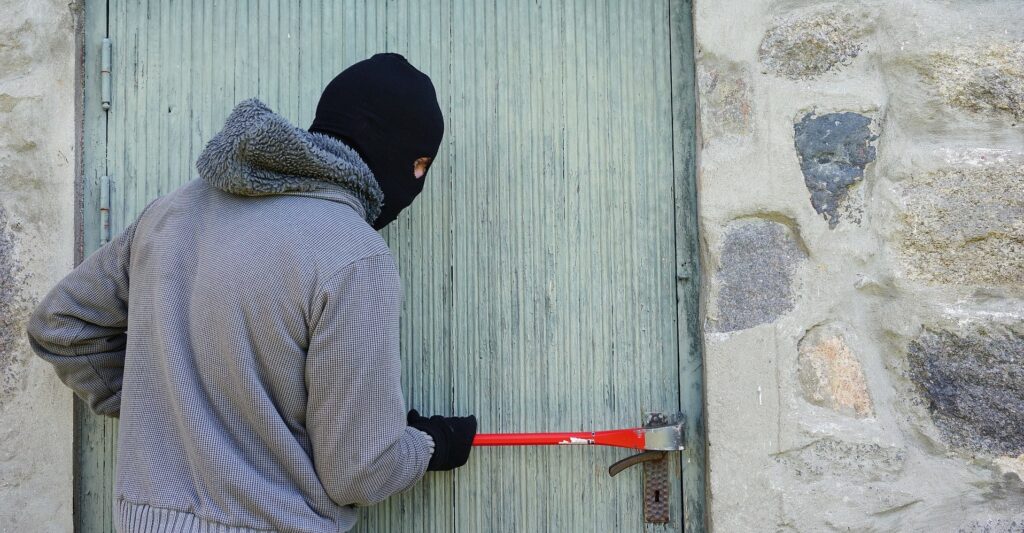Theft might seem like such an easy, straightforward thing. It’s taking things that don’t belong to you. While this is true, it is also only the basic idea of what constitutes theft. As it often happens in the law, things get very complex, very quickly. Theft is no exception.
Call 207-571-8146 or contact us online to schedule a consult with one of our highly skilled criminal defense & OUI lawyers, serving Southern Maine, today.
Table of Contents
One way that Maine does this is by looking at the value of what was taken: The more valuable, the more serious the crime, the harsher the penalty. Another way that Maine does this is by looking at how the theft was done. Thefts that occur with a firearm are more serious than those that weren’t, and so the penalty is higher for those, as well.
But police and law enforcement are not able to catch everyone and find all the stolen property that is lost. Thieves steal things and then sell it, and suddenly the difficult task of finding the thief and returning the stolen property to its owner becomes the nearly impossible task of finding the thief, then tracking the property to someone else, and then getting the property back from that person.
In an effort to solve this problem, Maine made it illegal to receive stolen property: It’s another way of committing theft.
Unfortunately, this is an incredibly problematic law and has created lots of problems.
While it’s likely that the new law has at least made it a little easier to get property back to its original owner and make amends, the reality of it is that it has also brought a lot of innocent people into the criminal justice system, by charging them with theft by receiving stolen property when they had no idea that it was stolen.
Theft by Receiving Stolen Property in Maine
The law making it illegal to receive stolen property in Maine is found at 17-A, §359. This law says:
“A person is guilty of theft if the person receives, retains or disposes of the property of another knowing that it has been stolen, or believing that it has probably been stolen, with the intent to deprive the owner of the property.”
Like many laws, while Maine’s law against receiving stolen property seems straightforward, there are several pieces of it that can open up a can of worms and get complex, very quickly. We’ll go over exactly how this law can be complex, right after we describe the penalties that you could face, if you get convicted for theft by receiving stolen property.
Penalties for Theft by Receiving Stolen Property
Like most of Maine’s other theft laws, the penalties for theft by receiving stolen property depends on the value of the property that was stolen, and how it was stolen.
| Value of Property | Class of Crime | Jail Time | Fines | Statute |
| Under $500 | Class E Misdemeanor | Up to 180 days | Up to $1,000 | 17-A, §359 (1)(A) |
| $500 – $1,000 | Class D Misdemeanor | Up to 1 year | Up to $2,000 | 17-A, §359 (1)(B)(5) |
| $1,000 – $10,000 | Class C Felony | Up to 5 years | Up to $5,000 | 17-A, §359 (1)(B)(4) |
| More than $10,000 | Class B Felony | Up to 10 years | Up to $20,000 | 17-A, §359 (1)(B)(1) |
Regardless of the value of the property, however, if the property is a firearm or an explosive device, or if the property was stolen using a firearm of explosive, then the charges for theft by receiving stolen property jump to a Class B felony. This is despite the fact that the person receiving stolen property has no control over how the property was taken, in the first place.
Call 207-571-8146 or contact us online to schedule a consult with one of our highly skilled criminal defense & OUI lawyers, serving Southern Maine, today.
“Receiving” Stolen Property in Maine
It might surprise you that this could be anything but simple. It’s obvious when you’ve “received” something, including stolen property. However, lawyers have been fighting over this one for centuries, in all areas of the law.
When it comes to stolen property, think of this: A friend of yours calls you and says that he just stole a TV. He asks if he can store it in your garage for a few days before he picks it up. You agree, and leave the garage door open for him to drop it off. The next morning, there’s a 60” flat screen TV on the work table. Have you “received” stolen property?
According to Maine’s theft by receiving stolen property law, the answer is “yes.” “Receiving” stolen property means “acquiring possession, control or title, or lending on the security of the property.” In the case of the TV in your garage, you probably have both possession, and almost certainly control, of the stolen property. Even though the TV is just sitting in your garage, and even though your friend has said that he’d come back to pick it up, you still have the power to lock your garage or move the TV to your basement so he can’t get it. Either of these would be exercising your control over the stolen property.
Is it illegal to buy stolen goods in Maine?
Knowing that it has been stolen, or believing that it has probably been stolen is probably the most crucial part of Maine’s law making buying or receiving stolen property a type of theft. In order to be convicted for theft by buying or receiving stolen property, you have to either know that the property was stolen, or have the impression that it probably was stolen.
Sometimes, there’s not much of a question that you know, or at least believe, that the property was stolen. In the situation where your friend has called you and asked if he can store a stolen TV, it’s pretty clear that you know that the TV was stolen. However, what if your friend didn’t say that? What if he asked if he could just store a TV in your garage for a few days? Now things get complex, and open up all sorts of opportunities for a criminal defense attorney to poke holes in the prosecutor’s case.
Contact a Theft by Receiving Stolen Property Defense Lawyer in Maine
If you’ve been charged for theft by receiving stolen property, having a good criminal defense attorney is crucial. These charges are often made with little evidence.
Attorneys at The Maine Criminal Defense Group have the training and experience to make sure that they don’t lead to groundless convictions. Call our office directly at (207) 571-8146 or contact us online.
Call 207-571-8146 or contact us online to schedule a consult with one of our highly skilled criminal defense & OUI lawyers, serving Southern Maine, today.
Blog Posts

Today’s topic of discussion concerns the crime of theft of services. Now let’s take, for example, you go to your local auto mechanic. He fixes your car. You don’t like[...]

When most people think of “white collar” crime, they tend to think of the numerous high profile examples, such as the Enron scandal, or the insider trading scandal involving Martha[...]

Theft comes in many different forms, but every specific form shares the same general characteristic: the thief acts with an underlying intent to take property from its rightful owner. The[...]

You might think of robbery, theft, and burglary as near-identical crimes. Those offenses may result in a similar outcome for the victim – loss of property or assets – but[...]

An increase in shoplifting offenses in Chicago has many business owners pointing fingers at the district attorney there, who had changed her office’s policy to reduce the number of felony-level[...]

A Maine native was recently arrested for shoplifting in New Jersey. The details of his arrest highlight an important issue with Maine’s shoplifting law: even empty accusations of shoplifting can[...]

Over $100,000 in merchandise was taken from a jewelry store in Farmingdale back in early August. The incident highlights the difference between shoplifting and some more severe criminal charges like[...]

The recent mass shooting in El Paso has boiled over into a larger discussion of the strain that Walmart stores put on their local communities, particularly local police departments. With[...]

A general overview of the crime statistics in Maine paints an interesting picture of law enforcement throughout the state. A key takeaway of those statistics, though, is that shoplifting is[...]

A report of shoplifting has snowballed into far more severe criminal allegations for a teenager in Aroostook County. Now he is being charged with drug possession and other offenses related[...]


